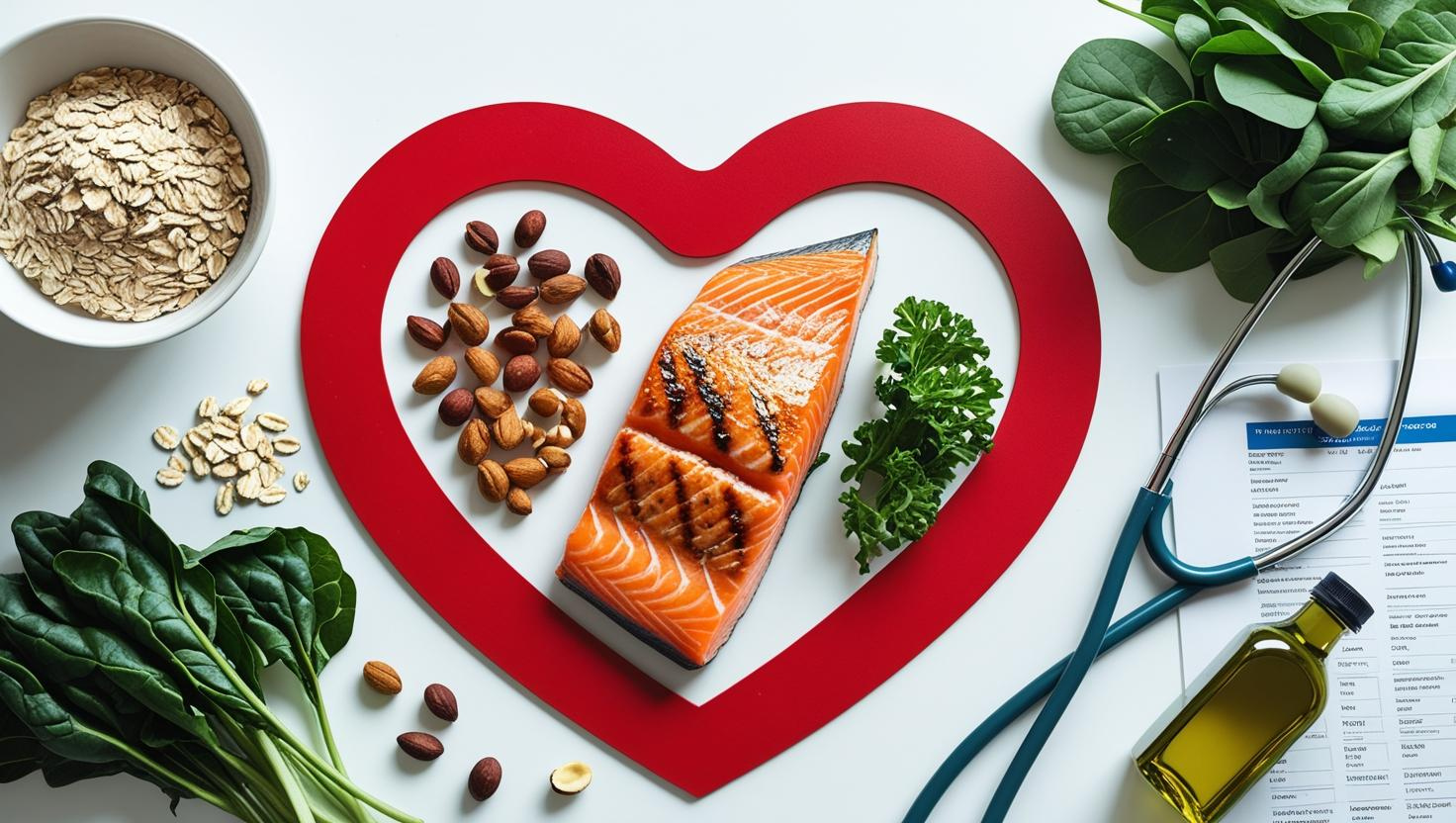Introduction: Understanding the Link Between Cholesterol and Heart Health
Cholesterol and heart health are deeply interconnected. High cholesterol is one of the leading contributors to cardiovascular diseases, including heart attacks and strokes. Despite its bad reputation, not all cholesterol is harmful. This article will break down the facts, debunk common myths, and guide you toward maintaining a healthy heart through proper cholesterol management.
Related Articles:
- Sea Moss and Cholesterol: Does It Really Help?
- How to Lower Cholesterol Naturally Without Medication
- Best Supplements for Lowering Cholesterol Naturally
- Low Cholesterol Diet Plan: 7-Day Meal Ideas for Beginners
What Is Cholesterol and How Does It Affect Heart Health
The liver naturally produces cholesterol, a waxy, fat-like material that can also be found in some meals. It is essential for the synthesis of vitamin D, certain hormones, and cell membranes. Although the body needs cholesterol to function properly, excessive amounts can be detrimental.
There are two main sources of cholesterol:
- Endogenous cholesterol: Produced by your body (mainly the liver).
- Exogenous cholesterol: Comes from animal-based foods such as meat, eggs, and dairy.
Because fatty deposits accumulate in arteries, too high cholesterol levels can lead to major cardiovascular issues.
Types of Cholesterol: LDL vs HDL
Understanding the types of cholesterol is vital in maintaining heart health:
- Low-Density Lipoprotein, or LDL, is the substance that carries cholesterol to your arteries and is frequently referred to as “bad cholesterol.” Excess LDL raises the risk of heart disease by causing plaque to accumulate and constrict.
- High-Density Lipoprotein (HDL), often called good cholesterol, helps transport excess cholesterol from the bloodstream to the liver for removal.
Preventing cardiovascular problems requires maintaining a lower LDL level and a higher HDL level.
How High Cholesterol Affects Your Heart
When cholesterol levels, particularly LDL, are elevated, they lead to atherosclerosis—a condition where fatty deposits (plaques) build up inside the arteries. Over time, this causes:
- Narrowed arteries: restricting blood flow to the heart and other organs
- Reduced oxygen supply: leading to chest pain (angina) or breathlessness
- Blood clots, which can trigger heart attacks or strokes
This makes monitoring cholesterol and managing your heart health crucial, even if you’re asymptomatic.
Common Risk Factors and Causes of High Cholesterol
- Unhealthy Diet: High intake of saturated fats, trans fats, and refined carbs
- Physical Inactivity: Lack of exercise reduces HDL and increases LDL
- Smoking: Lowers HDL and damages blood vessels
- Genetics: Familial hypercholesterolemia can cause high levels regardless of diet
- Medical Conditions: Diabetes, obesity, and hypothyroidism contribute significantly
How to Lower Cholesterol Naturally
Lifestyle changes are necessary to improve heart and cholesterol health without the use of medication. These are the best methods:
1. Improve Your Diet
- Eat more soluble fiber (found in oats, beans, fruits, and lentils)
- Choose healthy fats (avocados, olive oil, fatty fish like salmon)
- Avoid trans fats and reduce saturated fat intake
2. Exercise Regularly
- Aim for at least 150 minutes of moderate aerobic activity per week (e.g., walking, cycling)
- Physical activity raises HDL while lowering LDL and triglycerides
3. Quit Smoking
- Improves HDL cholesterol
- Reduces the risk of heart disease within months of quitting
4. Lose Excess Weight
- Even modest weight loss can improve cholesterol levels significantly
Related: Foods High in Cholesterol (and What to Eat Instead)
The Role of Diet: What to Eat and What to Avoid
Foods That Help Lower Cholesterol
- Oats, barley, and other whole grains
- Beans and legumes
- Eggplant, okra, and Brussels sprouts
- Nuts (almonds, walnuts)
- Fatty fish (tuna, mackerel, salmon)
Foods to Limit or Avoid
- Red meat and full-fat dairy products
- Fried and processed foods
- Baked goods made with hydrogenated oils
Best Supplements to Support Cholesterol and Heart Health
While diet and lifestyle come first, supplements may also help regulate cholesterol:
Amazon Pick: Nature Made CholestOff Plus
- Omega-3 fatty acids, from fish oil, help lower triglycerides
- Plant sterols and stanols: Block cholesterol absorption
- Psyllium husk: A soluble fiber supplement
- Niacin (Vitamin B3): Can improve HDL levels
Trusted Source: American Heart Association – Cholesterol
Related: Best Supplements for Lowering Cholesterol Naturally
Warning Signs of High Cholesterol
High cholesterol usually has no symptoms, but in some cases, you may notice:
- Yellowish deposits around the eyes (xanthelasma)
- Chest pain or angina
- Pain in the legs from narrowed arteries
- Shortness of breath during exertion
Routine blood testing is the only reliable way to monitor cholesterol levels.
Related: Signs of High Cholesterol: 7 Warning Signs You Shouldn’t Ignore
FAQs: Cholesterol and Heart Health
Q1: Can you reverse high cholesterol naturally?
Yes, with consistent dietary and lifestyle changes, many people can reduce cholesterol levels without medication.
Q2: Is all cholesterol bad?
No, HDL is beneficial and helps protect the heart.
Q3: What’s a healthy cholesterol level?
- Total cholesterol: below 200 mg/dL
- LDL: below 100 mg/dL
- HDL: above 60 mg/dL
Q4: Can stress affect cholesterol?
Chronic stress may contribute to behaviors (e.g., poor eating, smoking) that increase cholesterol levels.
Conclusion: Prioritize Your Cholesterol and Heart Health
The first step toward a healthier life is understanding cholesterol and how it affects your heart. You can significantly reduce your risk of heart disease by staying active, eating a heart-healthy diet, and using supplements when needed.
Start with small, consistent changes today. Your heart and future self will thank you.
Explore More on Cholesterol and Heart Health
Amazon Affiliate Disclosure
This article may contain affiliate links. As an Amazon Associate, I earn from qualifying purchases.
Disclaimer
This content is for informational purposes only and does not replace medical advice. Always consult your physician before starting any new diet or supplement.

